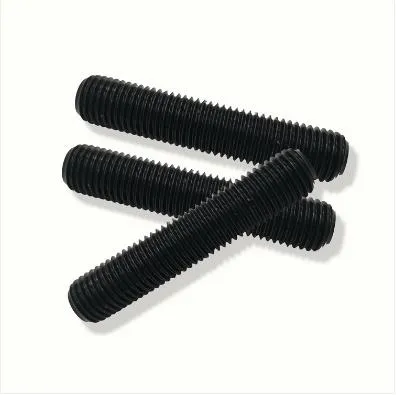furniture connector bolts
ਫਰ. . 01, 2025 02:02 Back to list
furniture connector bolts
Furniture connector bolts, often known as barrel nuts and cross dowels, are indispensable components in the world of furniture assembly, offering both strength and stability to the constructed pieces. Unlike regular screws or nails, these connectors ensure that furniture joints remain secure through years of use, making them a staple in both home and professional furniture manufacturing. Understanding the intricacies and utilities of these bolts can elevate one’s expertise in assembling furniture that's both sturdy and durable.
Authoritativeness in the realm of furniture assembly often includes a deep knowledge of design and engineering principles that underpin the use of connector bolts. These bolts are engineered to distribute stress evenly across the joint, significantly reducing the risk of failure in high-stress areas. Trusted sources in the furniture manufacturing industry highlight the importance of selecting high-quality bolts made from durable materials like stainless steel or brass. These materials not only resist corrosion but also sustain a flawless finish over time, ensuring the longevity and aesthetic appeal of the furniture. Trustworthiness is a vital aspect when it comes to the use of furniture connector bolts. Consumers rely on industry standards and manufacturer guarantees to assure that these products will perform as expected. Reputable manufacturers often subject their bolts to stringent quality control processes, guaranteeing that each piece meets specific mechanical performance standards. Additionally, many manufacturers provide detailed instructions and customer support, enhancing the user's confidence in assembling the furniture correctly. User reviews and testimonials further contribute to the trust factors, as real-world experiences are shared across forums and e-commerce platforms. Choosing furniture connector bolts is not merely a practical decision but also a strategic one that influences the durability and reliability of the assembled furniture. Assembling furniture using these connectors doesn’t just build a cohesive structure; it builds trust in the process and product, ensuring that end-users enjoy furniture that stands the test of time. Whether for a bespoke piece or a mass-produced item, understanding and implementing the strengths of furniture connector bolts can transform any furniture building endeavor from a mundane task into a masterful craft.


Authoritativeness in the realm of furniture assembly often includes a deep knowledge of design and engineering principles that underpin the use of connector bolts. These bolts are engineered to distribute stress evenly across the joint, significantly reducing the risk of failure in high-stress areas. Trusted sources in the furniture manufacturing industry highlight the importance of selecting high-quality bolts made from durable materials like stainless steel or brass. These materials not only resist corrosion but also sustain a flawless finish over time, ensuring the longevity and aesthetic appeal of the furniture. Trustworthiness is a vital aspect when it comes to the use of furniture connector bolts. Consumers rely on industry standards and manufacturer guarantees to assure that these products will perform as expected. Reputable manufacturers often subject their bolts to stringent quality control processes, guaranteeing that each piece meets specific mechanical performance standards. Additionally, many manufacturers provide detailed instructions and customer support, enhancing the user's confidence in assembling the furniture correctly. User reviews and testimonials further contribute to the trust factors, as real-world experiences are shared across forums and e-commerce platforms. Choosing furniture connector bolts is not merely a practical decision but also a strategic one that influences the durability and reliability of the assembled furniture. Assembling furniture using these connectors doesn’t just build a cohesive structure; it builds trust in the process and product, ensuring that end-users enjoy furniture that stands the test of time. Whether for a bespoke piece or a mass-produced item, understanding and implementing the strengths of furniture connector bolts can transform any furniture building endeavor from a mundane task into a masterful craft.
Next:
Latest news
-
Reliable Wire Bolts Suppliers & Manufacturers for Global Needs
NewsAug.13,2025
-
High-Quality Bolts for Lawn Mower Handle Supplier
NewsAug.12,2025
-
Leading Phosphated Drywall Screws Supplier | Bulk & Custom Orders
NewsAug.11,2025
-
Top Wire Bolts Company: Manufacturers, Exporters & Suppliers
NewsAug.10,2025
-
Premium Cabinet Bolts Supplier - Quality & Wholesale Fasteners
NewsAug.09,2025
-
Reliable Cabinet Bolts Supplier | Quality & Bulk Fasteners
NewsAug.07,2025
